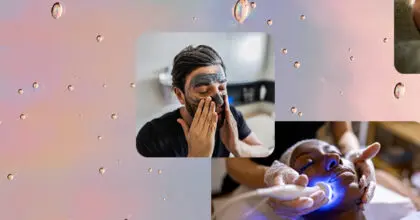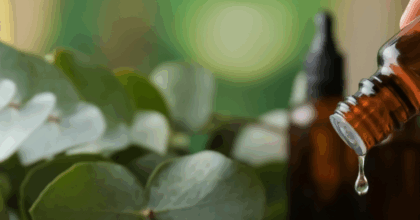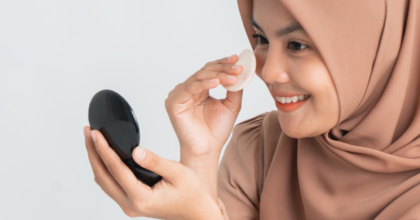One in five male personal care product users believe men are as sexualized as women are in ads
For today’s American men, all is not as glossy as it appears on the magazine covers, as new research from Mintel reveals that nearly one in five (18 percent) US men who use personal care products believe men are as sexualized as women are in ads. What’s more, some 20 percent of the same group agree that men are stereotyped in advertisements for these products.
25% of personal care users feel that the male models, celebrities and athletes used in these ads do not represent them
It seems that grabbing the attention of male consumers can be challenging, as today, 35 percent of men who use personal care products say they do not even pay attention to ads, a figure which rises to almost half (48 percent) of Baby Boomers. However, Mintel’s latest research reveals making men laugh could be the answer for personal care brands, with one third (33 percent) of men who use personal care products stating they prefer ads that are humorous. Overall, one quarter (25 percent) of personal care users feel that the male models, celebrities and athletes used in these ads do not represent them. Millennial men who use personal care products are especially likely to seek authenticity, preferring ads that feature someone they identify with (25 percent), as compared to 19 percent overall, and they are also more likely to gain inspiration from ads (24 percent) than male consumers overall (15 percent).
“Today’s men may tune out generic or generalized advertising, but featuring men across a variety of ages, body types or styles could make male spokesmen more relatable, as men prefer to see someone they can relate to that is not photoshopped. Brands and retailers will need to constantly adapt to appeal to the diverse male population, which spans beyond physical characteristics and race, but also sexual orientation, disabilities and even life ambitions,” said Rebecca Cullen, Home & Personal Care Analyst at Mintel.
Some 43 percent of men who use personal care products shave every day, but it appears that Millennial men love their facial hair, as only one third (35 percent) say they shave daily. What’s more, over two in five (42 percent) male consumers have a beard or a stubble, increasing to more than half (54 percent) of Millennials. However, while younger men may be more likely to have facial hair, they still want to make a good impression and carefully maintain their facial hair. Indeed, more than a quarter (28 percent) of Millennial men state they ensure their beard or stubble always looks neat, compared to 23 percent of all men.
Black men who use personal care products are the most likely to have well-maintained facial hair. Nearly half (48 percent) of Black men say they have facial hair and an additional 29 percent agree they ensure their facial hair always looks neat. Black men are also most likely to say they feel self conscious if their skin is not clear (21 percent) than 16 percent of male consumers overall.
21% of male personal care users agree their face looks fine without using any products
Overall, one third (32 percent) of men say they know their skin type. Just one fifth (21 percent) of male personal care users agree their face looks fine without using any products and 11 percent say they worry about wrinkles.
The quest for youth is high on the agenda for the nation’s dads as one in five (20 percent) consumers who are dads* use personal care products to look younger, compared to an average of 13 percent of all male personal care users. Meanwhile, some 29 percent of the same fathers use personal care products to express their style, compared to just 13 percent of men who are not fathers.
“Although men may be taking a more relaxed approach to shaving, they are still invested in their appearance. Black men are more likely to be influenced by celebrity culture, which has seen black men in sports, music and movies – such as Drake or Idris Elba – redefine beard style and embrace well-groomed facial hair. Black men look to trendsetting celebrities to provide inspiration for their own look and style, which influences their personal care purchases,” continued Cullen.
The men’s personal care category in the US is expected to reach sales of $4.4 billion in 2016, remaining nearly flat from the year prior. However, men’s personal care sales grew 15 percent when looking at the period from 2011-16.
Current sales growth has stemmed from the antiperspirant and deodorant segment, the largest segment in the men’s personal care category, accounting for well over one third (37 percent) of market sales. Shaving represents the second largest segment with 27 percent of overall market share, while skincare accounts for 21 percent. The strongest gains in the men’s personal care market were seen in the smallest segment, haircare, which makes up 15 percent of market share and grew nearly 27 percent percent between 2011-16.
“Growth has slowed more recently, as the category has stabilized and been impacted by competition from a growing number of male-specific and unisex options. Antiperspirant and deodorant experiences the heaviest usage and men are more likely to use a male-specific version, benefiting the segment. Going forward, we predict haircare will continue to experience the strongest gains as the segment is benefiting from numerous male-specific product launches, as well as men becoming more invested in their haircare routines due to interest in haircare products that offer gender-specific benefits,” concluded Cullen.
*Fathers with child(ren) under 18 in the household.
Press copies of Mintel’s Men’s Personal Care US October 2016 report and interviews with Rebecca Cullen, Home & Personal Care Analyst, are available on request from the press office.
For the latest in consumer and industry news, top trends and market perspectives, stay tuned to Mintel News featuring commentary from Mintel’s team of global category analysts.
-
Discover your next big breakthroughGet smart fast with our exclusive market research reports, delivering the latest data, innovation, trends and strategic recommendations....View Reports
-
2026 Global PredictionsOur Predictions go beyond traditional trend analysis. Download to get the predictive intelligence and strategic framework to shape the future of your industry in 2026 and beyond. ...Download now
-
Are you after more tailored solutions to help drive Consumer Demand, Market Expansion or Innovation Strategy?Ask for a customised strategic solution from Mintel Consulting today....Find out more

































